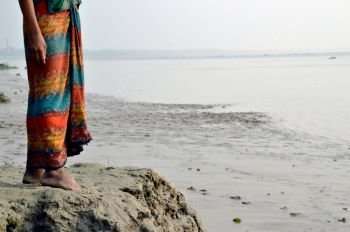Credit: University of Sussex
A major new report into climate change, released today, shows that the human symptoms of climate change are unequivocal and that the delayed response to climate change over the past 25 years has jeopardised human life and livelihoods.
University of Sussex academics have contributed to the 2017 annual report by the Lancet Countdown, which tracks the relations between climate change and public health.
The Lancet Countdown is an international research collaboration, providing a global overview of the relationship between public health and climate change. Publishing its findings in The Lancet medical journal each year, the initiative aims to help inform an accelerated response to climate change.
Leading academics and technical experts from across 24 partner institutions around the globe have contributed analysis included in the 2017 report. Example partner organisations include the World Bank, World Health Organization, University College London, and the University of Sussex's very own Sonja Ayeb-Karlsson and Dom Kniveton, based in the School of Global Studies.
"Our contribution with thematic working group 1 on Climate Change, Impacts, Exposure and Vulnerability mainly evolves around more comprehensive ways to measure and track disaster lethality," says Sonja Ayeb-Karlsson. "We are in a way very fortunate to have spent plenty of time in the field, such as in Bangladesh and East and West Africa, talking to people who have faced environmental shocks through generations. This allows us to dig deeper to understand the processes and real life stories beneath current health statistics."
The 2017 report presents an assessment of the progress of the global response to climate change and associated health impacts across 40 unique indicators from five thematic groups. The findings can be summarised in the following three key conclusions.
- The human symptoms of climate change are unequivocal and potentially irreversible – affecting the health of populations around the world, today.
- The delayed response to climate change over the past 25 years has jeopardised human life and livelihoods.
- Although progress has been historically slow, the past 5 years have seen an accelerated response, and in 2017 momentum is building across a number of sectors; the direction of travel is set, with clear and unprecedented opportunities for public health.
Provided by University of Sussex






















